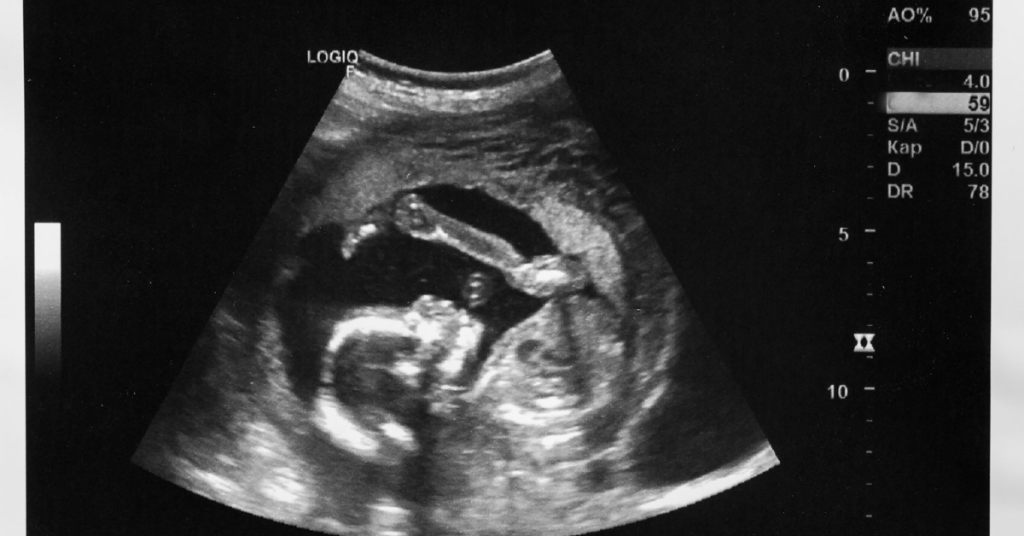A pregnancy ultrasound can be an important part of your pregnancy. Whether your pregnancy was planned or unplanned, getting a pregnancy ultrasound can help you determine your next steps. Prenatal ultrasounds show you a picture of your baby as he or she is developing inside your womb. They can help your healthcare provider determine if you and your baby are both healthy.
If you’re on the fence about whether you should have one, read on to learn more about pregnancy ultrasounds and when you should consider requesting one.
What is a pregnancy ultrasound?
A pregnancy ultrasound, sometimes called a sonogram, uses sound waves to produce a picture of your developing baby. You also can use one to see your ovaries and uterus. Ultrasounds don’t use ionizing radiation, so they are perfectly safe for both your baby and you.
Some women get one ultrasound to confirm their pregnancy during the early part of the first trimester. Your doctor also might suggest having another one before 24 weeks of pregnancy to ensure the baby’s development is on schedule and that there are no other complications.
Standard pregnancy ultrasounds are what most women have, but there are more advanced options that provide 3-and-4-dimensional imaging for a more comprehensive examination of the fetus.
Who needs a pregnancy ultrasound?
Every woman should have at least one pregnancy ultrasound to confirm their pregnancy, especially if they’ve taken more than one pregnancy test and gotten different results. The American College of Obstetricians and Gynecologists recommends that women get at least one sonogram between weeks 18 and 22 to detect any genetic abnormalities or other issues that may require immediate intervention.
Sometimes, parents ask for a pregnancy ultrasound for non-medical reasons, such as to determine the gender of their baby. While sonograms are safe, most healthcare practitioners discourage their frequent use if there is no medical purpose for performing one.

What happens during a sonogram?
Sonograms done early in your pregnancy must be done transvaginally because the fetus is only about 2 centimeters long and may not appear on a regular ultrasound. Your ultrasound technician takes extra precautions to ensure your health and safety and that of your developing baby during the procedure. While it can be a little bit uncomfortable, a transvaginal sonogram should never be painful.
You may be asked to have a full bladder during your pregnancy ultrasound. It can seem like a bad idea to have a full bladder, but it helps produce a better sonogram image because it puts your uterus in an ideal position.
During the first sonogram, you can expect your technician to be looking for the following information:
- Confirmation of pregnancy.
- Fetal heartbeat.
- Fetal size.
- Single or multiple pregnancies.
- Viability of fetus.
If you have any questions before the ultrasound, be sure to ask your sonographer or other trusted healthcare provider. Some pregnancy ultrasound providers offer free counseling to expectant mothers before the procedure.
Should you get a genetic screening ultrasound?
Later in your pregnancy, your OBGYN may offer you a genetic screening pregnancy ultrasound. You’re not required to have it, but you may find the information useful. Here are some questions to ask yourself before deciding if you want to go through with genetic screening.
- Do I have a family history of birth defects/disorders?
- Would I terminate my pregnancy if there was a risk of a genetic disorder?
- Would knowing about any genetic defects make it easier to prepare for parenting emotionally and physically?
There are no right or wrong answers to any of these questions. Talking them through with a trusted healthcare provider or pregnancy counselor can help you come to a resolution.
Where can you get a pregnancy ultrasound?
Care Net Pregnancy Centers of Albuquerque offers free limited pregnancy ultrasounds. Our team uses a pregnancy ultrasound to confirm your pregnancy 6 weeks from the first day of your last menstrual period. You can use our free limited ultrasound to determine gestational age and the viability of your pregnancy. We do not offer additional pregnancy ultrasounds during your pregnancy, but we can refer you to a healthcare provider that does.
You can share the pregnancy ultrasound we perform with your regular healthcare provider if you have questions or require additional care or services that we don’t provide at Care Net. To schedule your free limited pregnancy ultrasound, contact any of our convenient locations.
